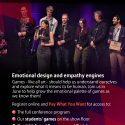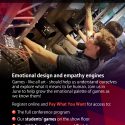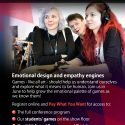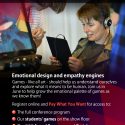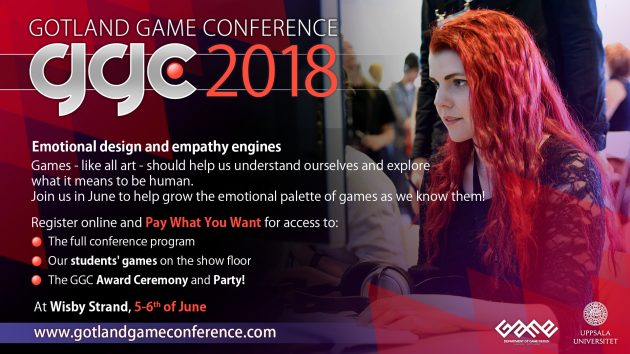
Games should be able to do what all art does; help us understand ourselves and explore what it means to be human.
Katherine Isbister writes (in her wonderful primer, “How Games Move Us“) that the uniquely interactive nature of games can act as a catalyst for generating complex emotions and that her goal as game developer and academic is “to grow the emotional palette of games as we know them”.
As a design education it is our pleasure to give students the tools to express ideas through games, but how can we expand that emotional palette in practice? Last year we started a conversation about maturity in games and looked at a number of topics, including the difficulties in making emotional games within the constraints of the medium.
This year we want to continue that conversation. We want to focus on concepts like emotional intelligence, empathy, social interaction, identity and all sorts of personal- and human interaction. How can we design for nuanced and deeper emotional experiences? Can interface- and input design form a shortcut to different emotional states? Elizabeth Sampat has looked at games as engines of empathy, we want to see what kinds of experience we can use them for.
So come and take part in this conversation. We want it to shape the games we can make tomorrow, and we’d like you to be part of that!
Register your conference passes on our ti.to page!
* * *
Since 2017 we have hosted the Game Educators Summit. The summit takes place 7-8th of June, just after the conference. We invite all university-level game educators to join us and help organize a strong network of support and knowledge sharing!
And feel free to spread our flyer around! (right click thumbnail -> [Save Link As])
